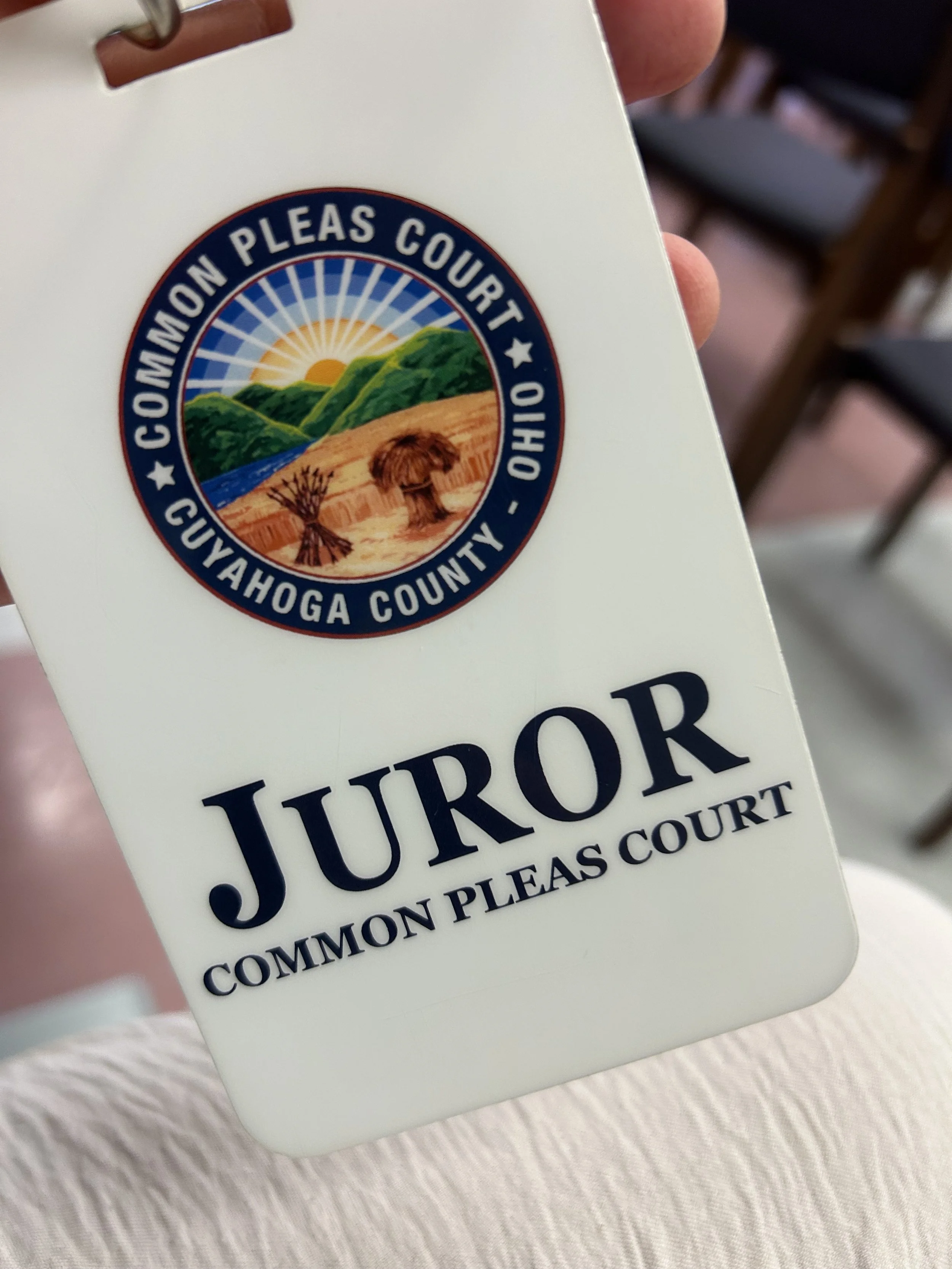Jury Duty - A Voir Dire Prayer
I was summoned for jury duty last week and, if I'm being completely honest, I was feeling annoyed at having my carefully planned calendar upended. However, as I looked around at the faces of all those coming and going from the Justice Center, I realized that the lives of those involved in the cases we might be asked to hear had been upended a hundred-times more than my own short week of civic duty.
Personalizing what could easily become an impersonal system - remembering that actual human beings were at the core of the process – helped to soften my grumpy heart.
On Wednesday, I was called up to a courtroom along with 39 other potential jurors for voir dire on an aggravated murder case. Voir dire is a French term that means “to see and to speak.” It is a fascinating part of the judicial process through which both the prosecution and defense attorneys ask potential jurors questions to determine which 12 people they believe will make the most impartial jury for the case.
After an intensive voir dire process that included such wide-ranging questions as “What crime dramas do you watch?” to “Would you kill someone in self-defense?” I was informed that “with deep gratitude for your time and service, you have not been selected to serve on this jury.”
Since then, however, this intriguing concept of voir dire has lingered with me... What if we approached all of our interactions with a “see and then speak” mentality? What if we chose to first see the image of God in one another before uttering a word? In a world that seems increasingly bent on dehumanizing the other…what if we focused on humanizing?
Now, when I see something that makes my blood boil, rather than fly off the handle, I pause for a moment, breathe deeply and offer a voir dire prayer. I pray for eyes to see the image of God in each and every person involved before I speak.
I may still choose to speak out or take action against any of the many injustices I see in our world. However, if we approach any given situation from a perspective of voir dire – seeing God’s image in all before speaking – we are then far more likely to act from a foundation of God-centeredness than self-centeredness.
A practice of voir dire prayer may be just what our world needs now to keep our common humanity at the center of all we see and say.
God of all,
may I have eyes to see your image in every single person and
may the words I speak honor our common humanity.
Amen

